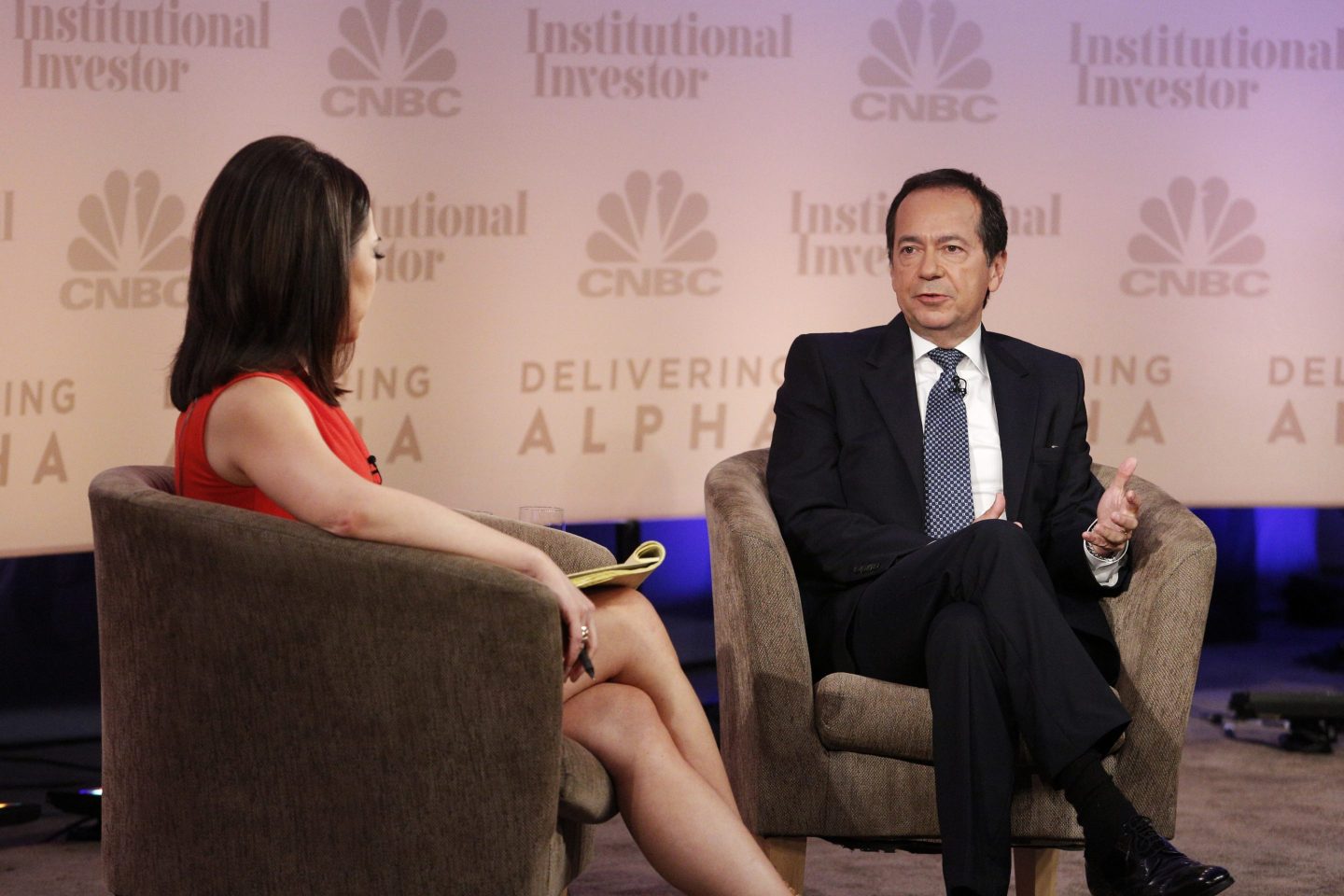
美國房地產(chǎn)市場正在經(jīng)歷史上最迅速,、最劇烈的轉(zhuǎn)變之一。
原因很簡單:飆升的抵押貸款利率讓全國各地的購房者望而卻步,。
而且這還遠遠沒有結(jié)束,。上周,美聯(lián)儲(Federal Reserve)的主席杰羅姆·鮑威爾甚至稱這是一次“艱難的修正”,。
雖然經(jīng)濟放緩的速度和廣度讓一些美國人擔心2008年房地產(chǎn)泡沫破裂和隨后的全球金融危機會重演,,但其他人并不那么擔心。對沖基金經(jīng)理約翰·保爾森就是相信歷史不會重演的人之一,,他曾經(jīng)在2008年因為做空美國房地產(chǎn)市場而獲利40億美元,,一舉成名。
保爾森在9月25日對彭博社(Bloomberg)表示:“我們現(xiàn)在不像以前那樣面臨金融體系崩潰的風險,。的確,,住房市場可能有點泡沫。因此,,房價可能會下降,,也可能會趨于平穩(wěn),,但不會達到2008年那樣的程度?!?/p>
兩位華爾街權(quán)威的故事
保爾森在1994年創(chuàng)立了自己的對沖基金保爾森公司(Paulson & Co.,,后來轉(zhuǎn)變?yōu)榧易遛k公室),擁有30億美元的凈資產(chǎn),。他認為,,住房市場的基礎(chǔ)比大金融危機(Great Financial Crisis)之初更加穩(wěn)固。
他說:“如今抵押貸款的潛在質(zhì)量要好得多,。市場上甚至沒有次級抵押貸款,。在那個時期(2008年),沒有首付,,沒有信用檢查,,杠桿率非常高。這與今天的情況正好相反,。因此,,如今抵押貸款的信用質(zhì)量不像當時那么糟糕了?!?/p>
在2008年房地產(chǎn)泡沫破裂和隨后的全球金融危機之后,,參議員們通過了《多德-弗蘭克華爾街改革和消費者保護法》(Dodd-Frank Wall Street Reform and Consumer Protection Act),以確保美國金融體系穩(wěn)定,,并提高美國抵押貸款的質(zhì)量,。
該法案成立了美國消費者金融保護局(Consumer Financial Protection Bureau),負責防止掠奪性貸款,。自美國消費者金融保護局成立以來,,購房者的平均信用評級大幅提高。在2008年房地產(chǎn)泡沫破裂之前,,美國購房者的平均信用評級為707,。根據(jù)Bankrate的數(shù)據(jù),今年第一季度,,美國購房者的平均信用評級為776,。
托馬斯·桑頓領(lǐng)導的美國銀行研究(Bank of America Research)的分析師團隊還發(fā)現(xiàn),所謂的“超級”FICO信用分在720 分或以上的購房者比例在今年夏天達到了75%,。在2008年房地產(chǎn)泡沫破裂之前的幾年里,,只有25%的購房者擁有類似的良好信用。
《多德-弗蘭克法案》(Dodd-Frank Act)還設(shè)立了美國金融穩(wěn)定監(jiān)管委員會(Financial Stability Oversight Council)和美國證券交易委員會信用評級辦公室(Securities and Exchange Commission Office of Credit Ratings),。金融穩(wěn)定監(jiān)管委員會負責監(jiān)督美國主要金融公司的健康狀況,,并為銀行設(shè)定準備金要求。美國證券交易委員會信用評級辦公室是在批評人士認為私人機構(gòu)在金融危機期間給出誤導性評級后設(shè)立的,負責核實主要金融公司的信用評級,。這兩個監(jiān)管機構(gòu)都有助于在經(jīng)濟困難時期提高美國金融體系和銀行的彈性,。
保爾森在9月25日指出,銀行在金融危機期間的杠桿率很高,,并且在《多德-弗蘭克法案》確立沃爾克規(guī)則(Volcker Rule)后承擔了在當今市場上被視為不可接受的風險,。沃爾克規(guī)則阻止銀行進行某些特定類型的高風險投資。
“當時的問題是,,銀行的投資項目風險性很高,。它們有很多高風險的次級、高收益,、杠桿貸款,。當市場開始下滑時,股票迅速承壓,?!彼赋觯缃?,普通銀行股票是2008年大金融危機期間的三到四倍,,這使它們不太容易出現(xiàn)違約。
雖然保爾森并不擔心2008年的危機會重演,,但對沖基金經(jīng)理邁克爾·伯里多年來一直警告說,,他認為全球經(jīng)濟正處于“有史以來最大的投機泡沫”中。正如《大空頭》(The Big Short)一書和電影中所描述的那樣,,對沖基金投資人邁克爾·伯里也因為預測大金融危機并從大金融危機中獲利而聲名鵲起,。
伯里認為,在大金融危機之后,,各國央行通過寬松的貨幣政策在從股票到房地產(chǎn)的各個領(lǐng)域制造了泡沫,,而新冠疫情時期旨在提振經(jīng)濟的支出只會讓情況變得更糟。
如今,,隨著世界各國央行官員轉(zhuǎn)變立場以對抗通脹,,并一致持續(xù)加息,,這位對沖基金負責人認為,,資產(chǎn)價格將大幅下跌。
“許多行業(yè)的風險都在增加,。這種不受約束的敘事一直在自我膨脹,,直到謬論被推翻,向所有人揭示這種敘事是多么愚蠢,,這也很容易引發(fā)一場革命,。”伯里在9月21日的一條隱晦推文中表示,,這條推文目前已經(jīng)被刪除,。(財富中文網(wǎng))
譯者:中慧言-王芳
美國房地產(chǎn)市場正在經(jīng)歷史上最迅速,、最劇烈的轉(zhuǎn)變之一。
原因很簡單:飆升的抵押貸款利率讓全國各地的購房者望而卻步,。
而且這還遠遠沒有結(jié)束,。上周,美聯(lián)儲(Federal Reserve)的主席杰羅姆·鮑威爾甚至稱這是一次“艱難的修正”,。
雖然經(jīng)濟放緩的速度和廣度讓一些美國人擔心2008年房地產(chǎn)泡沫破裂和隨后的全球金融危機會重演,,但其他人并不那么擔心。對沖基金經(jīng)理約翰·保爾森就是相信歷史不會重演的人之一,,他曾經(jīng)在2008年因為做空美國房地產(chǎn)市場而獲利40億美元,,一舉成名。
保爾森在9月25日對彭博社(Bloomberg)表示:“我們現(xiàn)在不像以前那樣面臨金融體系崩潰的風險,。的確,,住房市場可能有點泡沫。因此,,房價可能會下降,,也可能會趨于平穩(wěn),但不會達到2008年那樣的程度,?!?/p>
兩位華爾街權(quán)威的故事
保爾森在1994年創(chuàng)立了自己的對沖基金保爾森公司(Paulson & Co.,后來轉(zhuǎn)變?yōu)榧易遛k公室),,擁有30億美元的凈資產(chǎn),。他認為,住房市場的基礎(chǔ)比大金融危機(Great Financial Crisis)之初更加穩(wěn)固,。
他說:“如今抵押貸款的潛在質(zhì)量要好得多,。市場上甚至沒有次級抵押貸款。在那個時期(2008年),,沒有首付,,沒有信用檢查,杠桿率非常高,。這與今天的情況正好相反,。因此,如今抵押貸款的信用質(zhì)量不像當時那么糟糕了,?!?/p>
在2008年房地產(chǎn)泡沫破裂和隨后的全球金融危機之后,參議員們通過了《多德-弗蘭克華爾街改革和消費者保護法》(Dodd-Frank Wall Street Reform and Consumer Protection Act),,以確保美國金融體系穩(wěn)定,,并提高美國抵押貸款的質(zhì)量。
該法案成立了美國消費者金融保護局(Consumer Financial Protection Bureau),負責防止掠奪性貸款,。自美國消費者金融保護局成立以來,,購房者的平均信用評級大幅提高。在2008年房地產(chǎn)泡沫破裂之前,,美國購房者的平均信用評級為707,。根據(jù)Bankrate的數(shù)據(jù),今年第一季度,,美國購房者的平均信用評級為776,。
托馬斯·桑頓領(lǐng)導的美國銀行研究(Bank of America Research)的分析師團隊還發(fā)現(xiàn),所謂的“超級”FICO信用分在720 分或以上的購房者比例在今年夏天達到了75%,。在2008年房地產(chǎn)泡沫破裂之前的幾年里,,只有25%的購房者擁有類似的良好信用。
《多德-弗蘭克法案》(Dodd-Frank Act)還設(shè)立了美國金融穩(wěn)定監(jiān)管委員會(Financial Stability Oversight Council)和美國證券交易委員會信用評級辦公室(Securities and Exchange Commission Office of Credit Ratings),。金融穩(wěn)定監(jiān)管委員會負責監(jiān)督美國主要金融公司的健康狀況,,并為銀行設(shè)定準備金要求。美國證券交易委員會信用評級辦公室是在批評人士認為私人機構(gòu)在金融危機期間給出誤導性評級后設(shè)立的,,負責核實主要金融公司的信用評級,。這兩個監(jiān)管機構(gòu)都有助于在經(jīng)濟困難時期提高美國金融體系和銀行的彈性。
保爾森在9月25日指出,,銀行在金融危機期間的杠桿率很高,,并且在《多德-弗蘭克法案》確立沃爾克規(guī)則(Volcker Rule)后承擔了在當今市場上被視為不可接受的風險。沃爾克規(guī)則阻止銀行進行某些特定類型的高風險投資,。
“當時的問題是,,銀行的投資項目風險性很高。它們有很多高風險的次級,、高收益,、杠桿貸款。當市場開始下滑時,,股票迅速承壓,。”他指出,,如今,,普通銀行股票是2008年大金融危機期間的三到四倍,這使它們不太容易出現(xiàn)違約,。
雖然保爾森并不擔心2008年的危機會重演,,但對沖基金經(jīng)理邁克爾·伯里多年來一直警告說,,他認為全球經(jīng)濟正處于“有史以來最大的投機泡沫”中,。正如《大空頭》(The Big Short)一書和電影中所描述的那樣,對沖基金投資人邁克爾·伯里也因為預測大金融危機并從大金融危機中獲利而聲名鵲起。
伯里認為,,在大金融危機之后,,各國央行通過寬松的貨幣政策在從股票到房地產(chǎn)的各個領(lǐng)域制造了泡沫,而新冠疫情時期旨在提振經(jīng)濟的支出只會讓情況變得更糟,。
如今,,隨著世界各國央行官員轉(zhuǎn)變立場以對抗通脹,并一致持續(xù)加息,,這位對沖基金負責人認為,,資產(chǎn)價格將大幅下跌。
“許多行業(yè)的風險都在增加,。這種不受約束的敘事一直在自我膨脹,,直到謬論被推翻,向所有人揭示這種敘事是多么愚蠢,,這也很容易引發(fā)一場革命,。”伯里在9月21日的一條隱晦推文中表示,,這條推文目前已經(jīng)被刪除,。(財富中文網(wǎng))
譯者:中慧言-王芳
The U.S. housing market is experiencing one of the most rapid and dramatic shifts in its history.
The reason is pretty simple: Spiked mortgage rates are sidelining buyers across the country.
And it’s far from over. Last week, Fed Chair Jerome Powell even went as far as to call it a “difficult correction.”
While the speed and breadth of the slowdown have some Americans worried about a repeat of the 2008 housing bust and subsequent global financial crisis, others aren’t as concerned. John Paulson, the hedge funder who famously pocketed $4 billion betting against the U.S. housing market in 2008, is among those who believe history isn’t repeating itself.
“We’re not at risk of a collapse today in the financial system like we were before,” Paulson told Bloomberg on September 25. “Yeah, it’s true, housing may be a little frothy. So housing prices may come down or they may plateau, but not to the extent it happened [in 2008].”
A tale of two Wall Street oracles
Paulson, who started his hedge fund (which has since been converted to a family office), Paulson & Co., in 1994 and boasts a net worth of $3 billion, believes that the housing market is on stronger footing than it was at the start of the Great Financial Crisis.
“The underlying quality of the mortgages today is far superior. You don’t even have any subprime mortgages in the market,” he said. “In that period [2008], there was no down payments, no credit checks, very high leverage. And it’s just the opposite of what’s happening today. So you don’t have the degree of poor credit quality in mortgages that you did at that time.”
After the blow-up of the 2008 housing bubble and subsequent global financial crisis, senators passed the Dodd-Frank Wall Street Reform and Consumer Protection Act in order to ensure the stability of the U.S. financial system and improve the quality of U.S. mortgages.
The act created the Consumer Financial Protection Bureau (CFPB), which is tasked with preventing predatory mortgage lending. In the years since the CFPB’s creation, the average credit rating of homebuyers has improved dramatically. Leading up to the 2008 housing bust, U.S. homebuyers’ average credit rating was 707. In the first quarter of this year, it was 776, according to data from Bankrate.
Bank of America Research analysts led by Thomas Thornton also found that the portion of buyers with so-called “superprime” FICO scores of 720 or above hit 75% this summer. During the years preceding the 2008 housing bust, just 25% of buyers boasted similarly strong credit.
The Dodd-Frank Act also established the Financial Stability Oversight Council which monitors the health of major U.S. financial firms and sets reserve requirements for banks, and the Securities and Exchange Commission (SEC) Office of Credit Ratings which verifies the credit ratings of major firms after critics argued private agencies gave misleading ratings during the financial crisis. Both of these regulatory bodies have helped to improve the resiliency of the U.S. financial system and banks during times of economic stress.
Paulson noted on September 25 that banks were highly leveraged during the financial crisis and took risks that would be seen as unacceptable in today’s markets after the Dodd-Frank act established the Volcker Rule, which prevents banks from making some specific types of risky investments.
“The problem, in that period of time, was the banks were very speculative about what they were investing in. They had a lot of risky subprime, high-yield, levered loans. And when the market started to fall, the equity quickly came under pressure,” he said, noting that the average bank now has three to four times as much equity as they did during the Great Financial Crisis of 2008, which makes them less susceptible to default.
While Paulson isn’t worried about a repeat of 2008, hedge funder Michael Burry, who also rose to fame predicting and profiting from the Great Financial Crisis, as depicted in the book and movie “The Big Short,” has warned for years that he believes the global economy is in the “greatest speculative bubble of all time in all things.”
Burry argues that central banks created a bubble in everything from stocks to real estate with loose monetary policies after the Great Financial Crisis, and pandemic-era spending meant to boost the economy only made things worse.
Now, as central bank officials around the world shift stances to fight inflation and continue raising interest rates in unison, the hedge fund chief argues asset prices will fall dramatically.
“There is risk growing in many sectors. The unfettered narrative feeding itself until the absurdity explodes, revealing the folly to all and easily starting a revolution,” Burry said in a cryptic, since-deleted Sept. 21 tweet.






